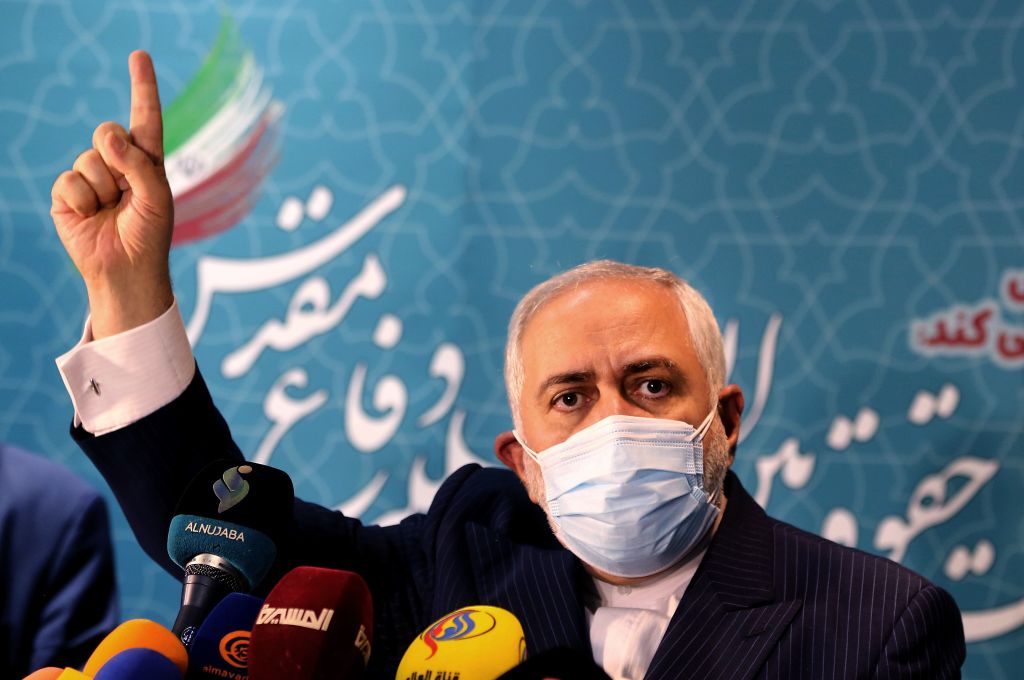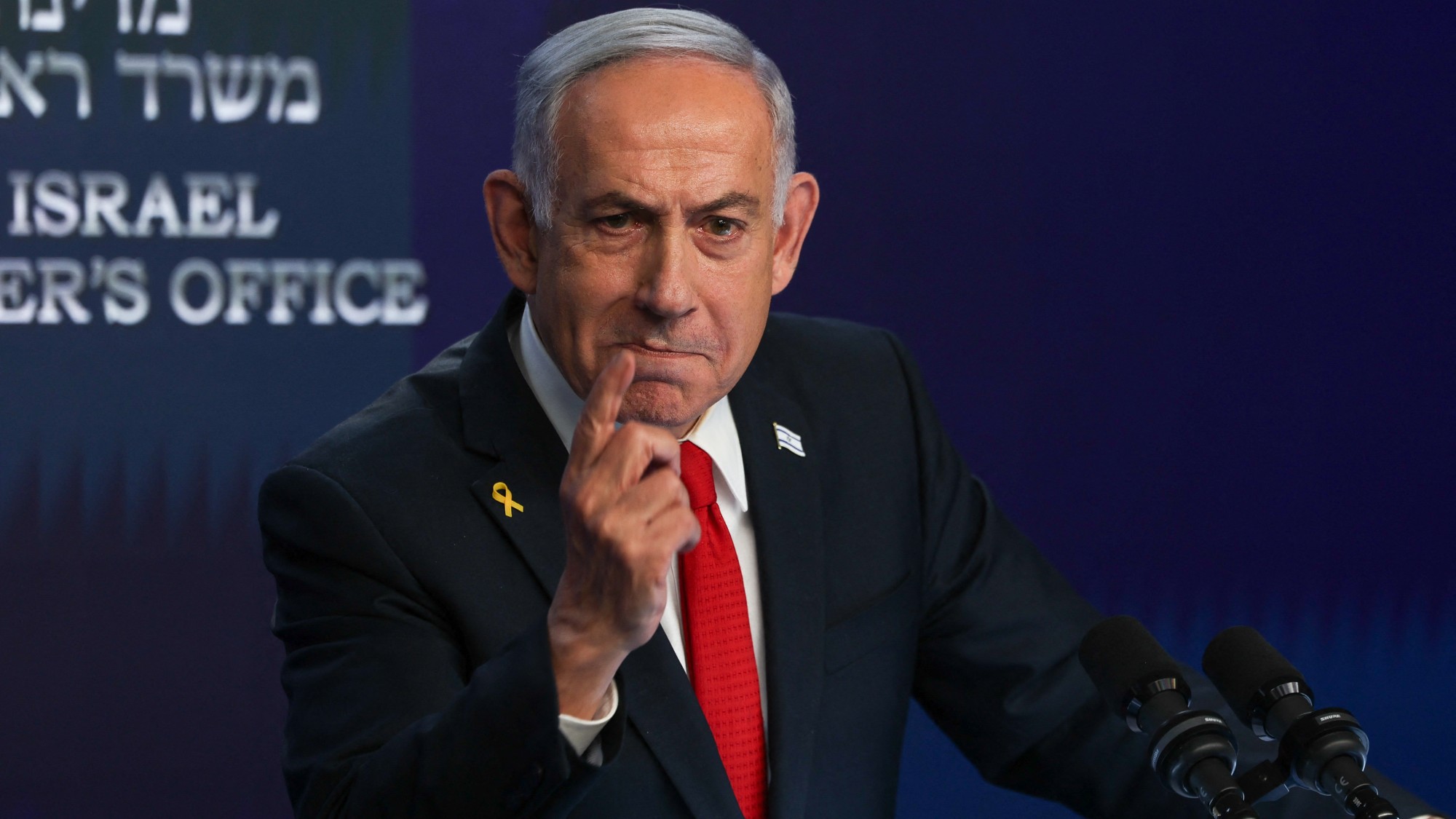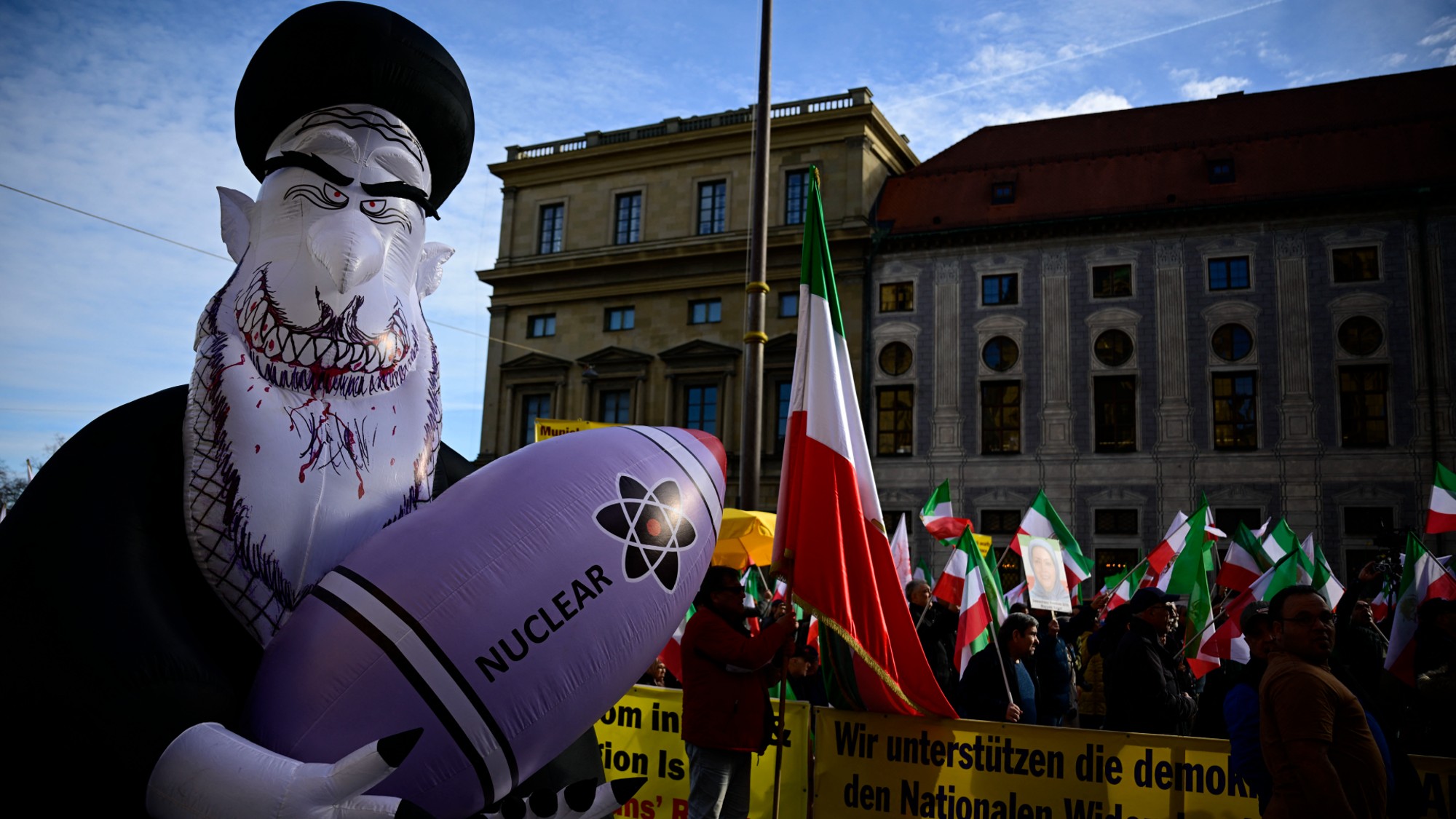Suspected Israeli cyberattack on Iranian nuclear site complicates U.S.-Iran nuclear deal talks


A free daily email with the biggest news stories of the day – and the best features from TheWeek.com
You are now subscribed
Your newsletter sign-up was successful
Sunday's cyberattack on Iran's underground Natanz uranium enrichment facility, widely believed to be the work of Israel, has added another layer of uncertainty over the already delicate indirect talks between Iran and the U.S. on reviving the 2015 nuclear deal. Iranian Foreign Minister Mohammad Javad Zarif on Monday threatened retaliation against Israel and "any power with knowledge" of the sabotage, but he said Iran will take part in scheduled Wednesday negotiations in Vienna, conducted through European and other parties to the nuclear accord.
Israel, whose government strongly opposed the 2015 deal and has criticized President Biden's efforts to resurrect it, has neither publicly denied or claimed responsibility for the cyberattack, which temporarily set back Iran's ability to enrich uranium at the facility. But Israeli media has heavily suggested the country is behind the sabotage, and U.S. and Israeli officials confirmed to The New York Times that Israel at least played a role.
The Biden administration has neither condemned nor celebrated the Natanz attack. White House Press Secretary Jen Psaki said Monday "the U.S. was not involved in any manner" and has "nothing to add on speculation about the causes or the impacts," adding, "Our focus is on the diplomatic path forward."
The Week
Escape your echo chamber. Get the facts behind the news, plus analysis from multiple perspectives.

Sign up for The Week's Free Newsletters
From our morning news briefing to a weekly Good News Newsletter, get the best of The Week delivered directly to your inbox.
From our morning news briefing to a weekly Good News Newsletter, get the best of The Week delivered directly to your inbox.

It isn't clear if the U.S. was warned about the sabotage beforehand or whether Israel timed the attack to coincide with a visit to Israel by U.S. Defense Secretary Lloyd Austin. Austin did not mention Iran at a news conference Monday with Israeli Prime Minister Benjamin Netanyahu.
The talks to restart the agreement, which former President Donald Trump pulled out from in 2018, are at an early stage, and the U.S. and Iran don't agree about which U.S. sanctions would be lifted and under what conditions; Iran wants them lifted before it returns to compliance with the nuclear deal while the U.S. sees Iran's compliance as a precondition. At this point, both sides are committed to the negotiations.
Israel wants "to take revenge because of our progress in the way to lift sanctions," Zarif said. "We will not fall into their trap. ... We will not allow this act of sabotage to affect the nuclear talks."
A free daily email with the biggest news stories of the day – and the best features from TheWeek.com
Peter has worked as a news and culture writer and editor at The Week since the site's launch in 2008. He covers politics, world affairs, religion and cultural currents. His journalism career began as a copy editor at a financial newswire and has included editorial positions at The New York Times Magazine, Facts on File, and Oregon State University.
-
 Political cartoons for February 15
Political cartoons for February 15Cartoons Sunday's political cartoons include political ventriloquism, Europe in the middle, and more
-
 The broken water companies failing England and Wales
The broken water companies failing England and WalesExplainer With rising bills, deteriorating river health and a lack of investment, regulators face an uphill battle to stabilise the industry
-
 A thrilling foodie city in northern Japan
A thrilling foodie city in northern JapanThe Week Recommends The food scene here is ‘unspoilt’ and ‘fun’
-
 How the Israel-Iran conflict broke out
How the Israel-Iran conflict broke outThe Explainer Israel's strike on Iran's nuclear and missile programmes was years in the planning
-
 Will the UK get involved in the Israel-Iran conflict?
Will the UK get involved in the Israel-Iran conflict?Today's Big Question Keir Starmer is 'walking a tightrope' in helping Israel limit Tehran's nuclear capabilities without being seen to do so
-
 What happens if Israel attacks Iran?
What happens if Israel attacks Iran?TODAY'S BIG QUESTION Israel is 'ready to strike' and Tehran has plans for counterattacks against the US as nuclear talks appear deadlocked
-
 Iran at the nuclear crossroads
Iran at the nuclear crossroadsThe Explainer Officials 'openly threatening' to build nuclear bomb, as watchdog finds large increase in enriched uranium stockpile
-
 British warship repels 'largest Houthi attack to date' in the Red Sea
British warship repels 'largest Houthi attack to date' in the Red SeaSpeed read Western allies warn of military response to Iranian-backed Yemeni rebels if attacks on ships continue
-
 Houthi rebels claim Red Sea ship attacks
Houthi rebels claim Red Sea ship attacksspeed read Iran-backed Yemeni group vows to escalate aggression towards Israel-linked vessels in revenge for Gaza war
-
 Israel plans next phase of Gaza war as first hostages released
Israel plans next phase of Gaza war as first hostages releasedSpeed read After four-day ceasefire 'we will not stop' until destruction of Hamas, says Israel
-
 Mob storms Russian airport 'looking for Jews'
Mob storms Russian airport 'looking for Jews'Speed Read Plane from Israel surrounded by rioters chanting antisemitic slogans after landing in Russia's Dagestan region
